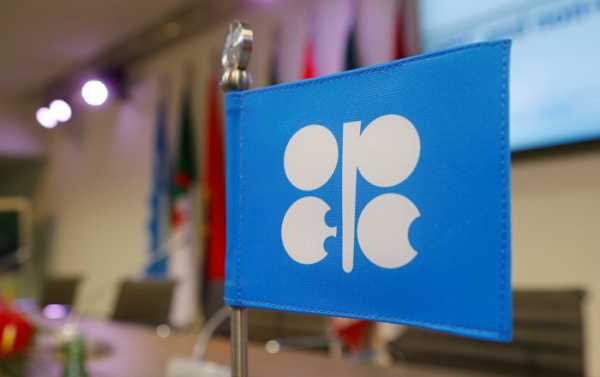
Brent crude prices creeped up past $40 per barrel this week for the first time since mid-March following April’s historically unprecedented nose dive to negative spot prices. Prices collapsed in the wake of the global halt in economic activity due to the coronavirus, as well as the failure of major oil exporting nations to agree on cuts.
The OPEC+* group of nations led by Saudi Arabia and Russia has tentatively agreed to extend oil production cuts for another month, an OPEC source has told Reuters.
According to a draft of the declaration, the 9.7 million barrel per day (bpd) output cuts during May-June will remain in place, with cuts expected to be eased from August to 7.7 million bpd to account for an expected recovery of the global economy.
US President Donald Trump praised Moscow and Riyadh on Friday, crediting the nations, as well as Mexico, for agreeing to production cuts which he said helped save the US oil industry.

President Donald Trump speaks during a news conference in the Rose Garden of the White House, Friday, June 5, 2020, in Washington. Front row from left, Small Business Administration administrator Jovita Carranza, Trump, and Vice President Mike Pence. Back row from left, member of Council of Economic Advisers Tyler Goodspeed, Labor Secretary Eugene Scalia, Treasury Secretary Steven Mnuchin, and Chairman of the Council of Economic Advisers Tomas Philipson.(AP Photo/Evan Vucci)
Brent crude reached $42 a barrel in Friday trading, more than double its April price.
OPEC+, the 23 nation coalition of oil producing states led by Saudi Arabia and joined by Russia, agreed to Saturday’s meeting after the major exporters pushed Angola, Nigeria, Kazakhstan and Iraq to stop alleged shirking on their production cut commitments.
Speaking to Arabian Business magazine, a delegate indicated that the July extension may run into August if necessary.
On Saturday, two OPEC sources confirmed to Reuters that Iraq had agreed to the quotas, and said that Baghdad would compensate May-June excess production with extra cuts between July and September.
The United States is not part of the OPEC+ group of nations, but did help them reach an agreement in April by committing to part of the cuts required of Mexico. The Trump administration has instead insisted its shale industry would reduce output naturally ‘through market forces’. 17 smaller US oil and gas producers, and the massive Whiting Petroleum Corp, have filed for chapter 11 bankruptcy over the past two months, with more companies big and small expected to go broke in the coming months as banks prepare to take control of dozens or even hundreds of oil and gas fields.
Sourse: sputniknews.com






